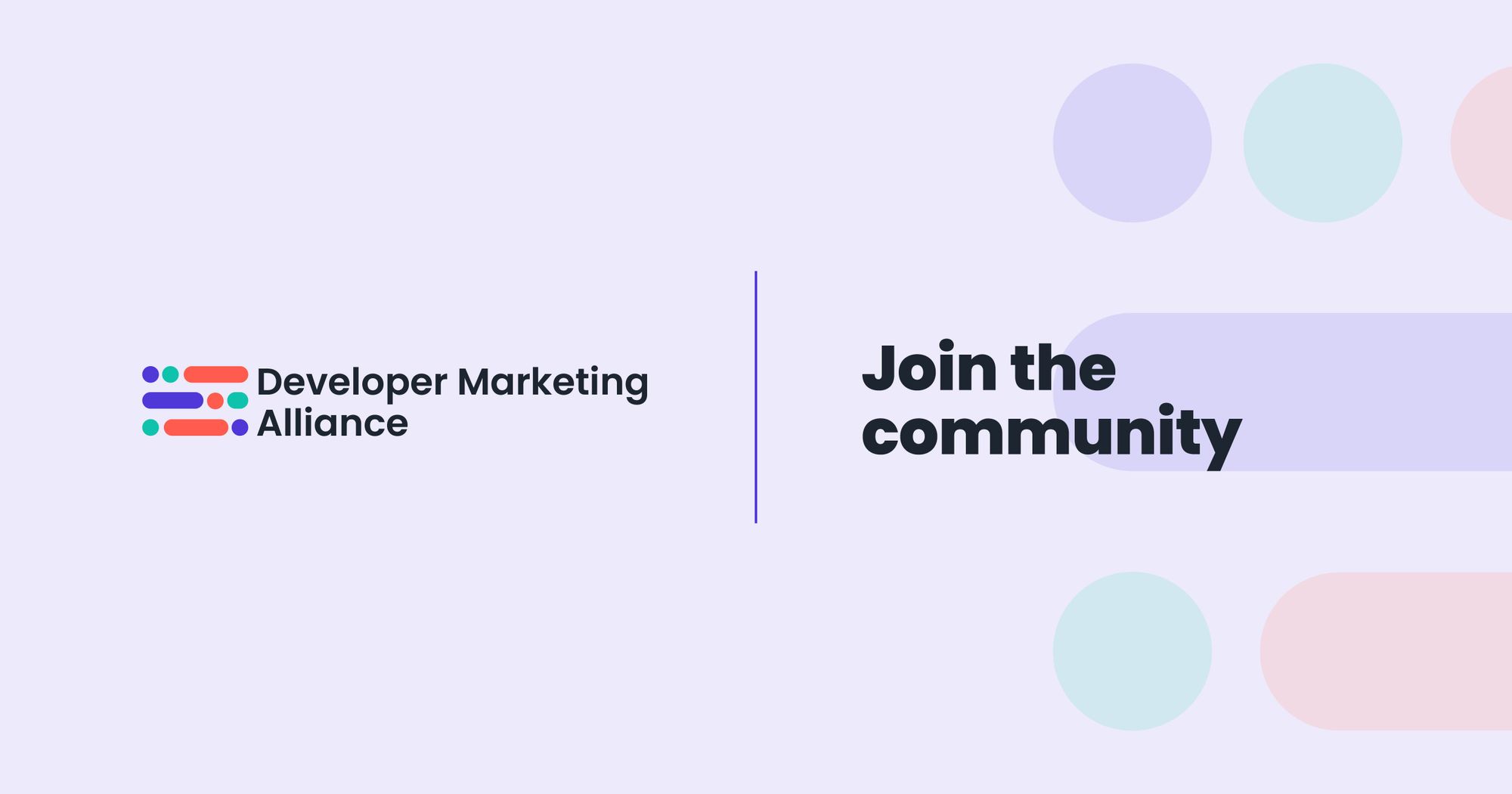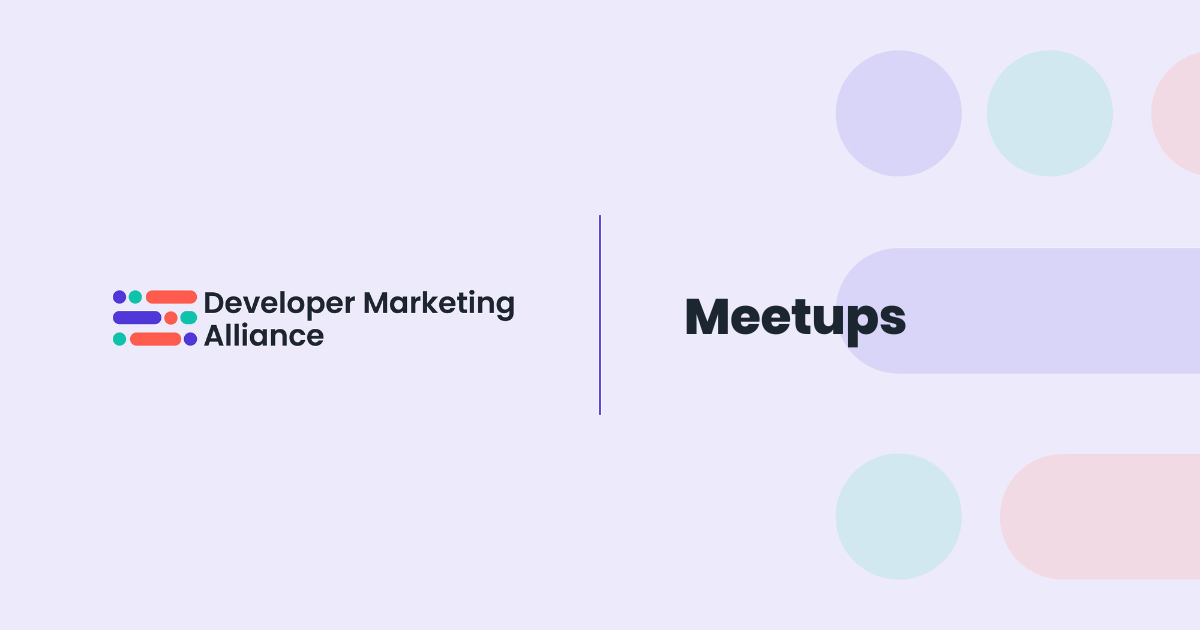In the 10 years since I moved to Berlin, I’ve worked in different roles, such as Event Manager and Developer Marketing Manager, at different companies in the tech industry. Most of the time, I've been working with the developer audience.
Currently, I'm Head of Developer Marketing at R3, where I work closely with the developer relations, developer experience, and engineering team to grow and support our community.
Today, I'd like to talk to you about internal evangelism.
What is developer evangelism?
I’ll talk about internal evangelism in tech companies, building software, building tech products, and building a developer community. And that's why I'd like to quickly go through what we already define as developer evangelism and developer relations.
The goal of developer relations and evangelism is to support, grow, and engage the developer community through collaboration, content, and engagement.
The developer evangelists are part of the developer relations team and are responsible for nurturing mutually beneficial relationships between organizations and software developers.

In other words, it's a collection of strategies and tactics that help companies to work better together with software engineers.
But what exactly do developer relations teams do and why do they do it? That depends on the needs of the organization. But there are some common tactics that most companies use to attract the developer audience.
We have content, including the creation, placement, and distribution of content like blog posts or videos.
Events are also very crucial, like sponsorships, speaking engagements, attending events, or organizing your own proprietary events like meetups or conferences.
Developer education is also part of this, such as documentation, tutorials, and how-to guides.
Developer experience is another tactic. API design, SDKs, reference apps, or sample code made available on GitHub.
Another key thing is developer advocacy. Interacting directly with developers on social media, on Stack Overflow, in forums, or at events.
And then we have the community. Running champions programs or other ways to incentivize or reward developers. Maybe gamification.
This isn’t an exhaustive list. There’s some overlap, and what one person, team, or department does will differ from company to company. But I think we can all agree that these are very common tactics to attract developers.
What is internal evangelism?
The goal of internal evangelism is to involve, educate, and encourage your co-workers in your organization to become evangelists of the company and advocates for its products.
What does it mean? Let's start by defining your target audience.
Who’s your target audience?
So, who are those co-workers? Are they from marketing? Or from sales?
They can actually be from engineering, marketing, sales, or product. They can even be from the legal team or the people's team, or any other department your company has.
The answer is quite simple; every employee in the company should be equipped with the tools, knowledge, and resources about your product that make it as easy as possible for them to spread the word and become the next ambassador or advocate of your product.
Everyone should understand the business and the product, especially in a tech company that's trying to build a community.

What kind of content can you share with your target audience?
What kind of content should you share with the rest of your company to make them the next ambassadors of your product?
You’ll likely often share content that’s meant for your external audience. Will the DevRel team host a webinar? Does an evangelist have a speaking engagement at a conference? Which new feature will be in the upcoming release?
This seems very obvious, but very often, it's not a natural reaction to inform co-workers what event sponsorships are planned, which blog posts have been published, or what the competition has recently announced.
You might focus on developer education, advocacy, and experience when you address your external audience, but why not provide education, advocacy, and experience to the people working at your own company?
You’ll see bigger initiatives such as sponsorship at a very big trade show or a big announcement, and there’s a press release and lots of buzz around it. Of course, this is shared with the whole company, but there are so many things that fall through the cracks. And some things will only make it to very selected teams and stay inside those.
Being in marketing, you usually have more insights than others into what's going on in the company, so being in developer marketing might be even more insightful due to the closer relationship with product, developer relations, and the engineering team. So, make use of this knowledge and work together with others to spread the word.
Ask the engineering team to highlight the latest developments and create excitement about it. Share the latest initiatives from DevRel to give colleagues the chance to access a training session themselves. You provide it to external people, so why shouldn't internal people get to join a session as well?
Let everyone knows that there’s a new exciting blog post out there that can be shared with their networks.
In addition to that, you can share information from the ecosystem. Is there any news from the competition? Or is there a meetup that co-workers might be interested in attending?
Let people know that there’s a discussion going on on Stack Overflow, in a forum, on Discord, or on Slack. They can join this discussion and add to it.

And tell them to add certain text to their watch list so that for future reference, they can be alerted when something from their watch list comes up, and then they can add something and support others in the community.
To be clear here, this is a lot. And I don't want you to misunderstand me; you’re not the one who's creating all the content. But be the enabler. Be the one who's encouraging others to share and publish content. And of course, also share it within your networks.
But you have the overview in marketing about what's out there and which initiatives are running so you can let everyone else in the company know what's happening currently and bring visibility to others.
How can you reach your audience?
What tactics can be used to get the attention of your co-workers?
You might say, “We have our monthly newsletter and we have our quarterly all-hands in the company, and we share our news there.”
I'm not saying that this is wrong or obsolete. But those are top-down approaches.
At an all-hands, the executive and leadership team have prepared PowerPoints and speeches and they’ve been reviewed multiple times. The same goes for the internal newsletter; it probably went through multiple approval processes and editing rounds.
In addition to these things, there’s so much more that can be done, and also on more of a peer-to-peer level, instead of just having the information that the leadership team wants to share.
But of course, you're dealing with a very diverse audience. So how can you reach this audience? Can you use the same tactics you’d use for your external audience?
The answer is, yes, you can, but distribution will be different.
First of all, it's important to have in mind that people consume content differently. It's true for your external audience, as well as your internal audience.
Some people really like to read a blog post, and some people prefer to consume a video for new information. Some keep track of the company's Slack channel, and some prefer to read an email newsletter. You need to offer a variety of channels to reach as many people as possible.
So, what can these channels be?
It can be email communication as part of a regular internal newsletter, or an email sent to a specific mailing list if it's very tailored content. It can also be an email that comes from a particular department.
Maybe it's a video. That video can be an interview, a demo, or a short explainer video to get a message across.
Make use of the intranet and post something there to bring visibility to your folks, or via Slack or Teams, or whatever messaging channel you're using.
However, these things get lost over time and aren’t so easily searchable, so create Wiki pages that people can search. Those will stay there long-term and provide transparency to others about what's happening.
Also, display information in the office. Many offices have slideshows on screens on the walls, so add a slide to a PowerPoint presentation so that people know there’s an event happening soon and they can sign up for it. Or just hang a note in the kitchen.
Additionally, you can also present talks or encourage others to present a talk during a brown bag session to give updates on the latest developments or highlight a specific feature someone worked on. Record the talks and make them available to everyone.
If a talk isn’t enough, maybe an in-depth training session can be provided from the developer relations team to the sales team. You could be the one spearheading these initiatives and bringing them to life.
You could even organize an internal hackathon to create a space for new ideas, which gets people to actually work with their own product and get to know their product better. And this doesn't just have to be for developers; you can also host a non-developer hackathon which can serve as a space for creativity for everyone in the company.
Gamification can also be a way to reach your audience. You could do polls or trivia quizzes, or competitions where people can win a small prize.
Just be careful because the prize shouldn't be the only thing. The same goes for your external audience. You don't want people to take part in something just because there’s a prize involved. But it can still be nice encouragement to get people involved and to bring visibility to something.
In addition to those channels, the way you communicate is very important. Make it as easy as possible to share content and get helpful resources. You don't want your external community or audience to click through five pages until they can finally sign up for your webinar, and you don't want to waste your co-workers' time either.

Share links, share resources, and make it super easy to get your message across and get to the information.
If you want people to share an upcoming event that you’re hosting, you can maybe create a post for them so they can just copy and paste it and then share it with their networks.
At the same time, be informative. Share all the information necessary to bring value to your co-workers. Don't forget to add a date when you're promoting an event because people might not click on the link if they don't know when it's happening.
Don't forget the time zone either. And let them know if the event is online or if it’ll take place in an office location, or if it’ll be recorded at all. Include all information that’s important in order to get your message across.
At the same time, be concise. Don't add everything just because you can. What information is important? What information will suffice? These are the questions you need to answer. And that's all that's needed for your message. Don't write a novel.
Repetition is also important. As I mentioned, people consume content differently. Some won't have seen the Slack message because they have too many. Some will have missed the newsletter because they just don't read newsletters. So you have to be a little bit annoying and post on multiple channels at the same time.
And post your content again because things fall through the cracks. Some people will think, I know this already. But many people haven't heard about it before. And the more you repeat it, the more it sticks.
But also, listen to your co-workers. If you do something and get feedback, act accordingly if it's valuable and it adds to your initiative. If they feel that they aren't being heard, they won't listen to you either.
And last but not least, you want to create excitement about your own product to your external audience, so you want to do the same internally. What are the highlights? What’s the best thing about your product?
Show it to people; many people have been working very, very hard on the latest release of your product, so be their ally and work with them to bring visibility to the cool feature they built on.
Encourage them to write a blog post and support them. Tell them you’ll proofread the blog post and you’ll be there with them on their journey. But you also want to help them get that visibility for the cool stuff they built because you want people to actually use it.
It’s the same externally as well as internally. First of all, internally, the people should know what’s possible and what your product can do for everyone.

How can all of this help to grow your external community?
The question remains: how does all of this help to grow your external community?
It helps to grow your external community because it provides easily shareable content so that your internal community members can quickly inform their networks that there’s a new video to watch, blog posts to read, a code sample to try, or a new release to check out.
If you make it easy for them to share, then they’re more likely to do so. If there are barriers and they have to invest time in sharing something with their network, then it's not so likely that they’ll share it. But the more outreach there is, the more it’ll help your promotional efforts.
They can also offer support on Stack Overflow. In a perfect world, when you do developer marketing and you build a community, you want a thriving community on Stack Overflow, Discord, or Slack, where other community members help your community members.
But of course, it's not that easy.
In the beginning, your developer relations team or engineering team will usually work on answering questions on these channels. But maybe there can be even more than just these people. Maybe others can be intrinsically motivated. “Oh, I've seen this question. I can answer it and I will do so.”
It gives your community members a feeling of belonging because they’re being heard and it didn't take seven days until their question was answered.
By giving some tips on how you can track certain channels better, it’s more likely that people from your company will chime in into a conversation and help other community members to solve their problems.
It’s also possible that your co-workers will leave a comment on a Reddit post or on Hacker News. It's not that they should pitch your product. That's very counterproductive. But they can add value to a discussion that’s addressing a problem you encountered in the past. They can add to that. They can tell people how your company had the same problem and how they solved it.
In general, if a bigger, more diverse group of people within your company is publishing content because you support them in doing so, the more content you have that can be promoted.
And if you let people know that a meetup or conference is happening, they’ll have the opportunity to network and share what they’re working on with their peers.

What are the advantages?
Eventually, there’s knowledge for everyone. Everyone in your company is equipped with the same material, resources, and information to be able to talk confidently about your product.
The more people in your company who truly understand the benefits, capabilities, and limitations of your product, the more people who can become ambassadors of the product and recruit new community members.
It's also economical. This isn’t an expensive ad campaign or a sponsored article, this is people talking about something they like to talk about because they understand it and they can add value to a conversation.
It’s also authentic. It’s not an ad that pops up on a social media timeline, and you don't force anyone to do anything. You encourage, motivate, and deliver the resources. But if a co-worker feels like going to a meetup and ends up talking to people about the technology and the product or the ecosystem, it’ll probably be intrinsically motivated and the conversation won't sound like a pitch.
But people will hear about your product eventually on a peer-to-peer level. And maybe after that conversation, they’ll be intrigued and think, Yeah, I’ll check out their community Slack or sign up for their newsletter.
And by involving and including the whole company, you’ll have a diverse crowd who’ll potentially spread the word. They’ll share information or talk to their peers who come from different backgrounds and have different views.
And again, there’s authenticity behind it, but also the benefit of reaching a variety of people. Some might be mainly interested in the technical aspects of your product, and some might be interested in the market.
Eventually, more people will hear about what your company’s doing, but don't think that everyone in the company is aware of all initiatives because there’s been a meeting or a LinkedIn post’s been put up.
As we all know, working in silos is definitely an issue, and giving easy access to resources is key and transparency is important. It also gives people a feeling of belonging and not being left out within your company.
That's why, in my opinion, internal evangelism is an important puzzle piece to help your community grow. The more people who feel part of something and are well prepared, the happier they’ll be to be ambassadors of the product you're trying to build a community around.
Join our Slack community to connect with marketers and developers, discussing hot topics, get answers to your most pressing questions, check out job opportunities, and more.






